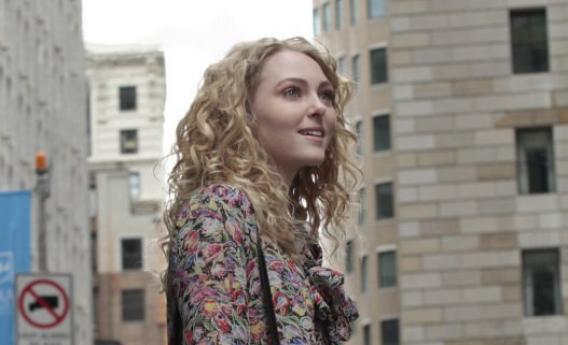The Sex and the City prequel series The Carrie Diaries premiered last night, and, unsurprisingly, it’s not very good. Centering on a high school-aged Carrie Bradshaw, the perky show has a penchant for ’80s nostalgia and lacks the edge of the original series. It also highlights how stories about a popular character at a younger age can very easily go wrong. (While it has yet to premiere, Bates Motel—an attempt to tease out the twisted childhood of Norman Bates—doesn’t look much better.)
Still, for every Young Hercules (starring Ryan Gosling!) and Star Wars Episode I: The Phantom Menace, there is, say, The Godfather Part II. It’s not just that Robert De Niro was able to equal the charisma of Marlon Brando as the older Vito Corleone: The saga of the Italian mob family also provided a perfect opportunity to go back to the past and see just how Vito got to where he was when we first met him. Of course, Coppola knew how to tell the story, too: The dual storylines, with the rise of young Vito juxtaposed with the descent of his son Michael years later (Al Pacino), conveyed the epic sweep of the Corleone experience.
But you don’t need a cinematic genius at the height of his powers to make a backstory work. You just need to think about whether your character’s past is actually interesting, and, if so, how to best bring that out. Smallville took essentially the same, very conventional route that The Carrie Diaries does—it’s a straightforward account of Clark Kent in high school—but it still worked, because Clark Kent was secretly a superhero. Superheroes lend themselves to origin stories, for obvious reasons. Watching such characters vanquish their villains is thrilling, but sometimes digging into their background can be just as intriguing—and this is something that fans of the show appreciated enough to keep it on the air for 10 seasons.
Your special powers needn’t be supernatural, either: Indiana Jones and Sherlock Holmes were excellent candidates for the backstory treatment, because they, too, have unique talents that set them apart even at an early age. Barry Levinson’s Young Sherlock Holmes is not a classic, but even that imperfect film made it clear that the premise was a good one. Likewise, The Young Indiana Jones Chronicles was a fun, somewhat underappreciated show, which worked well with what we already knew and loved about the character Harrison Ford made famous.
It’s doubtful that many Sex and the City fans have been clamoring for more stories about that show’s central ladies—especially after two ill-conceived films. One of the more striking aspects of the series was just how insular it was: With the exception of a few throwaway lines here and there, the extended families and youthful pasts of its characters were never fully explored. Nor did they need to be—their personalities flourished plenty within the relationships they had with one another, in their professional lives, and, of course, in their various romances.
So do you need a uniquely talented character with an inherently interesting past to make a backstory worthwhile? Probably. Unless your character is a cartoon: Animated series love to apply the fountain of youth to its characters, not needing to worry about the real-life ages of those who portray its heroes and villains. Not every entry in this category proves to be a good idea—consider Baby Looney Tunes and A Pup Named Scooby Doo, for instance—but the best of the bunch can be just as fun as their inspirations. And for obvious reasons: The Muppet Babies and Tiny Toon Adventures are essentially the same shows as the ones they spun off from: The beloved characters are younger, but their wackiness is largely unchanged.
Which helps to highlight just why The Carrie Diaries fails as badly as it does: Watching the show, one can’t help but think of the stark difference between adult and adolescent TV. If its creators were willing to push the envelope a little with regard to what’s expected of a CW teen series, and make it edgier and smarter, it might work. But you’d be wise not to hold your breath.
